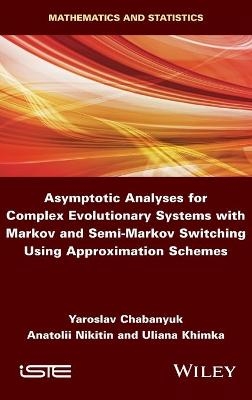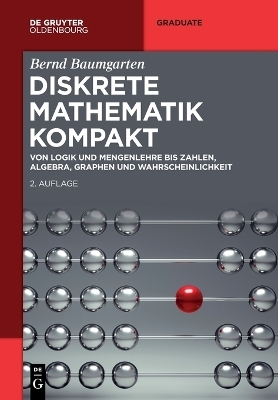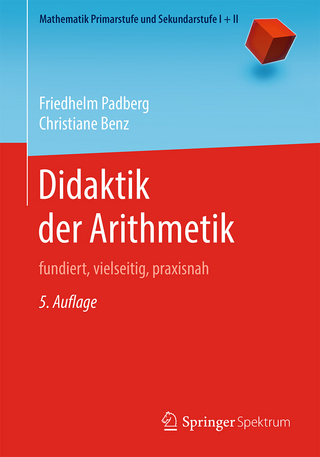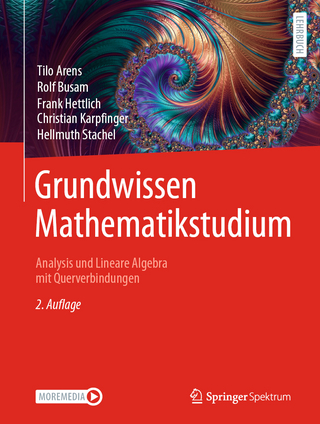
Asymptotic Analyses for Complex Evolutionary Systems with Markov and Semi-Markov Switching Using Approximation Schemes
ISTE Ltd and John Wiley & Sons Inc (Verlag)
978-1-78630-556-5 (ISBN)
Weak convergence of stochastic processes is usually proved by verifying two conditions: the tightness of the distributions of the converging processes, which ensures the existence of a converging subsequence, and the uniqueness of the weak limit. Achieving the limit can be done on the semigroups that correspond to the converging process as well as on appropriate generators. While this provides the convergence of generators, a natural question arises concerning the uniqueness of a limit semigroup.
Yaroslav Chabanyuk is Senior Research Officer at Lublin University of Technology, Poland, and at Ivan Franko National University of Lviv, Ukraine. His work specializes in system analysis and properties of random processes with Markov and semi-Markov switching. Anatolii Nikitin is Senior Research Officer at Taras Shevchenko National University of Kyiv, Ukraine, and Professor at the Jan Kochanowski University (JKU) in Kielce, Poland. His work specializes in system analysis and asymptotic properties of stochastic differential equations. Uliana Khimka is Professor at Ivan Franko National University of Lviv. She is the author of more than 100 scientific works and, in 2013, she defended her PhD thesis, Continuous Stochastic Optimizations Procedure in the Environment with Markov Switching.
Acronyms vii
Introduction ix
Chapter 1. Average Scheme and Diffusion Approximation Scheme 1
1.1. Stability of stochastic systems in the average scheme 1
1.2. Stability of stochastic systems in the diffusion approximation scheme 13
Chapter 2. Levy Approximation Scheme 23
2.1. Differential equations with small stochastic additions in the Levy approximation scheme 23
2.2. Asymptotic dissipativity of stochastic processes with impulse perturbations in the Levy approximation scheme 31
2.3. Double merging of phase space for differential equations with small stochastic supplements under Levy approximation conditions 38
Chapter 3. Asymptotical Analysis of Random Evolutionary Systems Under Poisson Approximation Conditions 51
3.1. Differential equations with small stochastic additions under Poisson approximation conditions 51
3.2. Asymptotic dissipativity of stochastic processes with impulse perturbation in the Poisson approximation scheme 58
3.3. Double merging of the phase space for differential equations with small stochastic supplements under Poisson approximation conditions 65
Chapter 4. Stochastic Approximation Procedure 73
4.1. Markovenvironment 73
4.1.1. Jumping SAP in averaging scheme 73
4.1.2. Jumping SAP under diffusion approximating scheme 82
4.2. Semi-Markov environment 95
4.2.1. SAP under the averaging scheme 95
4.2.2. Jumping SAP in the diffusion approximation scheme 104
4.3. Asymptotic normality of fluctuations of the procedure of stochastic approximation with diffusive perturbation in a Markov environment 117
4.4. Asymptotic normality of SAP in a semi-Markov environment 124
Chapter 5. Stochastic Optimization Procedure 135
5.1. SOP in the average scheme 135
5.1.1. Convergence SOP 135
5.1.2. Asymptotical normality of Stochastic optimization procedure 141
5.1.3. SOP with impulse perturbation 147
5.2. SOP under the diffusion approximation scheme 155
5.2.1. Convergence SOP 155
5.2.2. Fluctuations of the stochastic optimization procedure with diffusion perturbations 162
5.2.3. Fluctuation of the SOP 172
Chapter 6. Combination of Approximations of Different Types 183
6.1. Asymptotic properties of a stochastic diffusion process with an equilibrium point of a quality criterion 183
6.2. Asymptotic properties of the impulse perturbation process with a control function under Levy approximation conditions 200
References 211
Index 217
| Erscheinungsdatum | 15.01.2021 |
|---|---|
| Verlagsort | London |
| Sprache | englisch |
| Maße | 10 x 10 mm |
| Gewicht | 454 g |
| Themenwelt | Mathematik / Informatik ► Mathematik |
| Naturwissenschaften ► Chemie | |
| Sozialwissenschaften ► Pädagogik | |
| ISBN-10 | 1-78630-556-9 / 1786305569 |
| ISBN-13 | 978-1-78630-556-5 / 9781786305565 |
| Zustand | Neuware |
| Haben Sie eine Frage zum Produkt? |
aus dem Bereich


